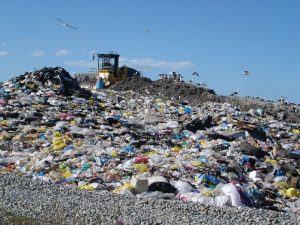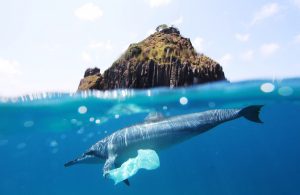Do you have a plastic bag filled with other plastic bags in your cupboard? You are not alone. Most of us got into the habit of hoarding plastic bags until so many accumulates that we need to start a second ‘bag of bags’ to store them. Most of these bags will never be used again. They will be chucked in the bin when we notice they are spilling out of the cupboard.

We all care about the environment but don’t realise the scale of pollution that’s created because of our disposable lifestyles. We are so used to getting new plastic bags everywhere we shop, that we don’t even think about them anymore, it became normal. It is estimated that over 1 trillion plastic bags are used every year around the world. That’s 1,000,000,000,000! Every year! And this number doesn’t include all the other types of soft plastics we use, like food and product packaging, zip lock bags, cling wrap etc. The amount of plastic surrounding us is jaw dropping.
Unfortunately most of the plastic is not recycled and ends up in landfill, in nature or in waterways where they kill wildlife and marine life. Whales, turtles, seals and many other animals often mistake plastic bags for food, such as jellyfish. Their digestive systems become blocked which ultimately lead to their death. What’s worse is after their body decomposes, the plastic that killed them is still intact and ready to do more harm.

Plastic doesn’t just go away, because there is no ‘away’. Once it’s created, it’s here to stay for a long time. It will eventually break into tiny pieces and will stay in the environment for hundreds of years and will continue to do damage long after you or your children or your children’s children are gone. So is it really worth having the convenience of disposable plastic bags just to make it easier to carry some items for 5 minutes? We hope your answer to this question is no.
TIPS FOR REDUCING PLASTIC
Here is how you can start your own journey towards a more eco-conscious lifestyle and reduce plastic consumption:
- Take reusable shopping bags with you when you go shopping and keep some in your bag and some in your car, so you always have them at hand.
- Take reusable produce bags with you for your fresh fruit and veggie shopping or to use for bulk products, like pasta, beans or nuts. Keep them in your reusable shopping bags, so you don’t forget them.
- Refuse fresh produce that is pre-packaged in plastic or styrofoam.
- Shop at bulk food stores when you can to avoid pre-packaged products.
- Choose products that come in glass jars and not in plastic packaging. The jars can be washed and reused later.
- Use alternatives to cling wrap, for example silicon or beeswax wrap, or just simply use a plate turned upside down to cover dishes.
- If you drink coffee, get a reusable coffee cup – and don’t forget to take it with you in the morning.
- Use a reusable, durable water bottle and refill it when needed.
- Refuse straws when buying a drink/juice/smoothie. If you can’t live without straws, get a reusable one (stainless steel, glass or bamboo) and take it with you.
- If you regularly get take away, use a reusable lunchbox and reusable cutlery. Better yet: take it easy and dine in.
- If you do end up with plastic bags, reuse them for as long as you can. Don’t forget to recycle them and other soft plastics in the end of their useful life. You can do this at one of 830 REDcycle drop off points across Australia.